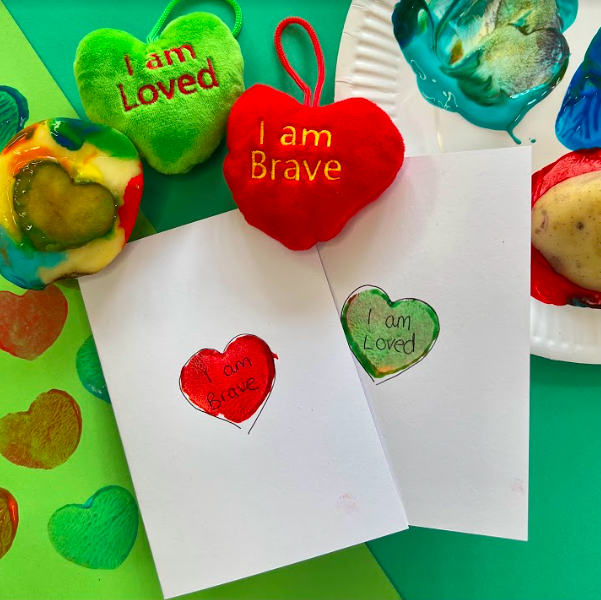Nurturing your child through early bonds forms the building blocks for developing your child’s social skills. As humans and social animals, we are dependent on each other to survive. For babies, this mostly means meeting their physical needs, such as, feeding them to support their growth and caring for them to keep them safe. Nurturing babies is also important to help develop their sense of belonging in this world. When a baby feels secure in their relationships as they grow, they will also build trust in others and begin to explore with confidence and self-belief.
We thrive in securely attached relationships.
Building social skills with your child plays a vital role in developing their Emotional Intelligence. Learning social skills is a crucial part of a child’s development. Social skills build confidence and competencies that a child can build on and benefit from when interacting with others. Social skills come more naturally to some than others. And whilst it is never too late to learn new skills, it is easier to develop social skills early in life. Supporting your child in this way will help them to develop into a healthy, adaptive, relational, cooperative and emotionally intelligent adult.
Research shows that developing social skills from a young age can positively affect:
- Communication: conversation and asking for things to get needs met
- Compassion: empathising, caring for, and understanding others
- Relationships: building friendships and partnerships
- Emotions: regulating and managing personal emotions and those of others
- Perspective: not taking things personally and understanding other points of view
- Reflecting: processing to reflect and respond rather than react.
In a world where academic ability appears to take centre stage, it is also important to help your child flourish emotionally in life. Pressures in society can cause high levels of anxiety in children. This can lead to issues, such as, eating disorders, behavioural problems, substance misuse, and other mental health issues. All of which can affect a person’s social interactions with others. If a child lacks social and emotional skills, it can cause them to worry, become anxious and find it difficult to cope and set boundaries in life. All of which can impact them negatively and cause barriers for their development and learning.
Research tells us that children with strong social skills are more likely to get on in life. Focusing on developing their social skills also supports their academic and professional future, as social skills help them to:
- Gain qualifications
- Get a good job
- Earn money
- Form healthy relationships.
Think about your daily life and the social skills you role model to children. Whether you realise it or not; you are a role model to your child all the time. Children watch what you do. With awareness of the skills you use, you can help model to them ways to build their social skills.
Tips for building social skills with your child:
- Greet your neighbours
- Smile and be polite to people in all of your dealings
- Talk about how you feel
- Talk about what you like
- Use facial expressions to emphasise words
- Act with kindness towards others
- Have new experiences with excitement rather than fear
- Discuss other people’s difficulties to develop empathy towards others
- Share other people’s ideas, choices or opinions and discuss with acceptance of difference
- Join groups to gain experience
- Roleplay social situations through play and ask each other questions.
You can verbalise your thoughts to children for them to learn by pointing out the positive things they do. Tell them when you notice them sharing their toys with others or show kindness towards someone. You can also suggest these things if they don’t come readily to them by encouraging them to share their toys or do something kind for another person. Communicate all of this respectfully with your child and discuss their ideas and opinions. And if any challenges arise, deal with them calmly and with a problem-solving manner.
When children are confident socially, they listen, understand, set boundaries, and show empathy towards others. They are more likely to be adaptive, reasonable, and problem-solving. They are less likely to take things personally, doubt or blame themselves and negatively allow situations to impact their self-esteem. They may take the perspective that if someone is being mean to them, it is more the other person’s problem than their own. As they mature, they may even ask the person if they are okay or become assertive in telling them that their behaviour is not appropriate.
How strong are your social skills? Journal your thoughts for reflection: ……………………………………………………………………………………………………..
……………………………………………………………………………………………………..
……………………………………………………………………………………………………………………………………………………………………………………….
3 Take aways:
Nurturing your child through early bonds forms the building blocks for developing your child’s social skills.
Building social skills with your child plays a vital role in developing their Emotional Intelligence.
You can verbalise your thoughts to children for them to learn by pointing out the positive things they do.
Reflection:What social skills would you like to teach your child first?




